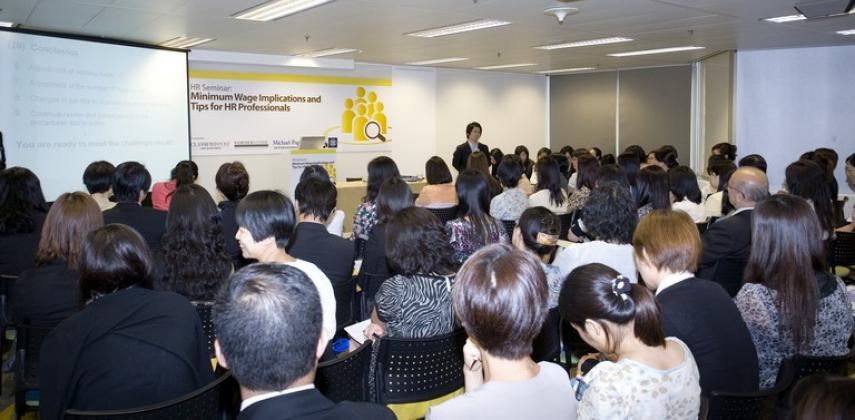"Some employees arrive at the office before 9am and stay after the regular office hours," says Steven Chung of Goldenway Investments Holdings' human resources, chief executive office. "Other factors that affect the calculation of `hours worked' include statutory benefits such as public holidays and leaves; the arrangement for work outside office hours such as overtime, on call, and standby; and work rendered outside the office, such as business travel," Chung adds.
Katy Fok, director of human resources at upscale hotel The Mira in Tsim Sha Tsui, thinks record-keeping is the main challenge. "The regular 'clock-in clock-out' system at the entrance is mainly for security purposes. To have a more accurate record of 'hours worked', we now ask staff to sign in and out at various work stations. This system is based on mutual trust," she says.
The law has put hotels in a dilemma over the recruitment of international trainees. It is not reasonable to pay the trainees a regular salary. Overseas trainees will not be able to obtain a visa if they are paid a salary. "We just have to put the programme on hold," Fok says.
The ordinance also does not have any specific provision for overseas students who want to gain practical experience by working with companies in Hong Kong.
In the hotel-specific salary calculation, tips on bills are counted as wages. This has become a headache as hotels usually pay the tips in the middle of the following month but the law only gives employers a grace period of seven days after the end of the last month to pay the employees' full wages. Sometimes these tips, many paid with credit cards, make the difference in whether the salary of an employee reaches the minimum wage.
Chung and Fok were among the HR executives who attended the "Minimum Wage Implications and Tips for HR Professionals" seminar organised by Kornerstone, Classified Post and Michael Page. Winnie Chiu, a partner at ONC Lawyers, was the speaker.
To comply with the ordinance, companies need to make adjustments to their HR practices. Good communication with employees is vital for the implementation of such changes, says Chiu.
A set of proper procedures for overtime work and payment also need to be in place. "Again, mutual agreement should be reached. Supervisors should avoid ambiguous situations. For example, the supervisor gives an assignment to a subordinate at 5.15pm and expects the job to be completed by 9am the next morning," Chiu says.
"For payments on overtime, standby, on call and business travel, companies should look at contracts of individual employees to see how payments are calculated. A company-wide policy should be made to state clearly how to calculate such payments."
For student internships, exemption from the minimum wage applies to full-time post-secondary students in Hong Kong or residents studying overseas. The exemption period is 59 days.
"Companies should get endorsement from universities that the work is compulsory and leads to the award of an academic qualification upon completion. The candidates should have letters from their respective universities to verify this," Chiu says.
Ambiguous terms
- Definition of "hours worked"
- Factors that affect the wage calculation
- Payment of overtime, standby, on-call service
- Wage application to student-interns


